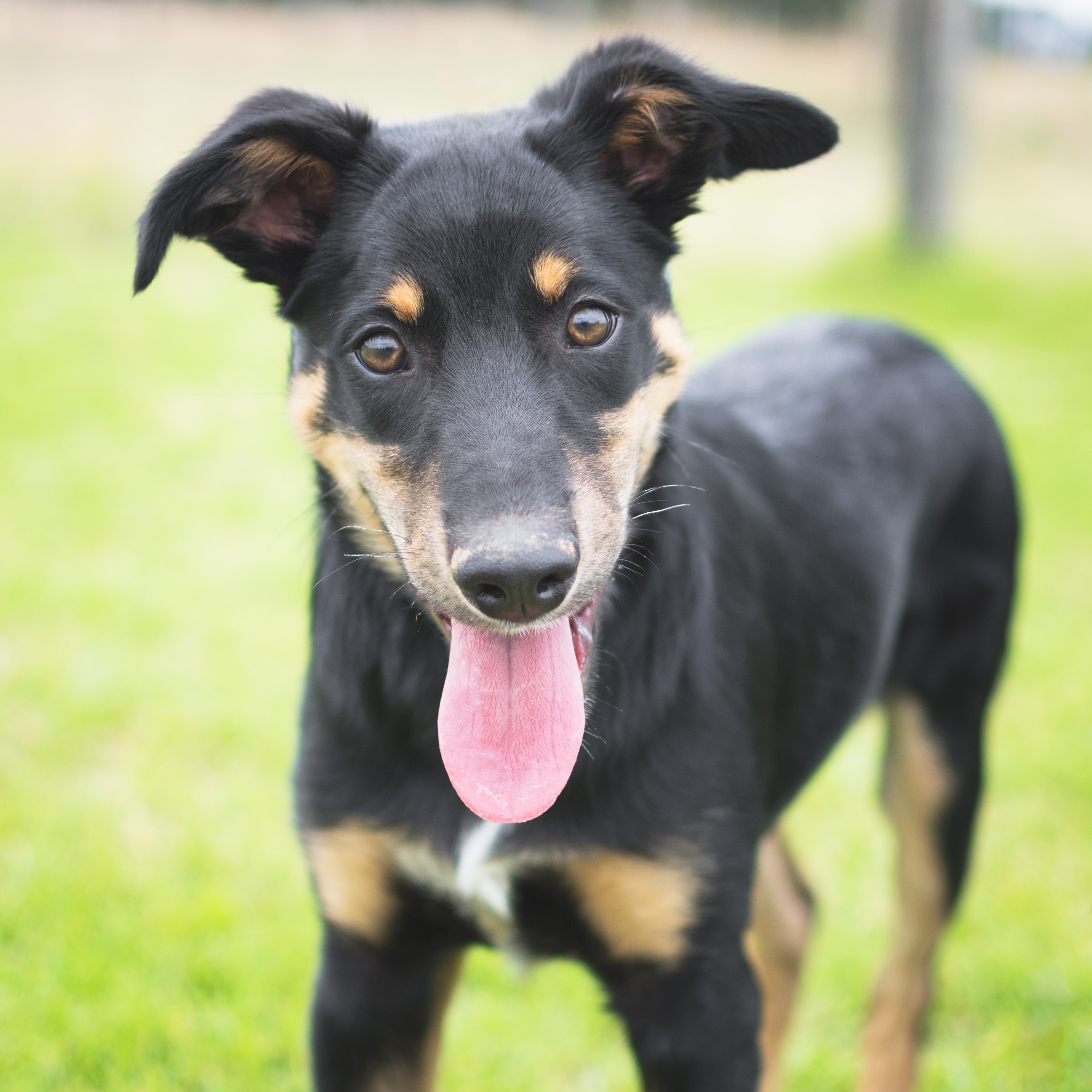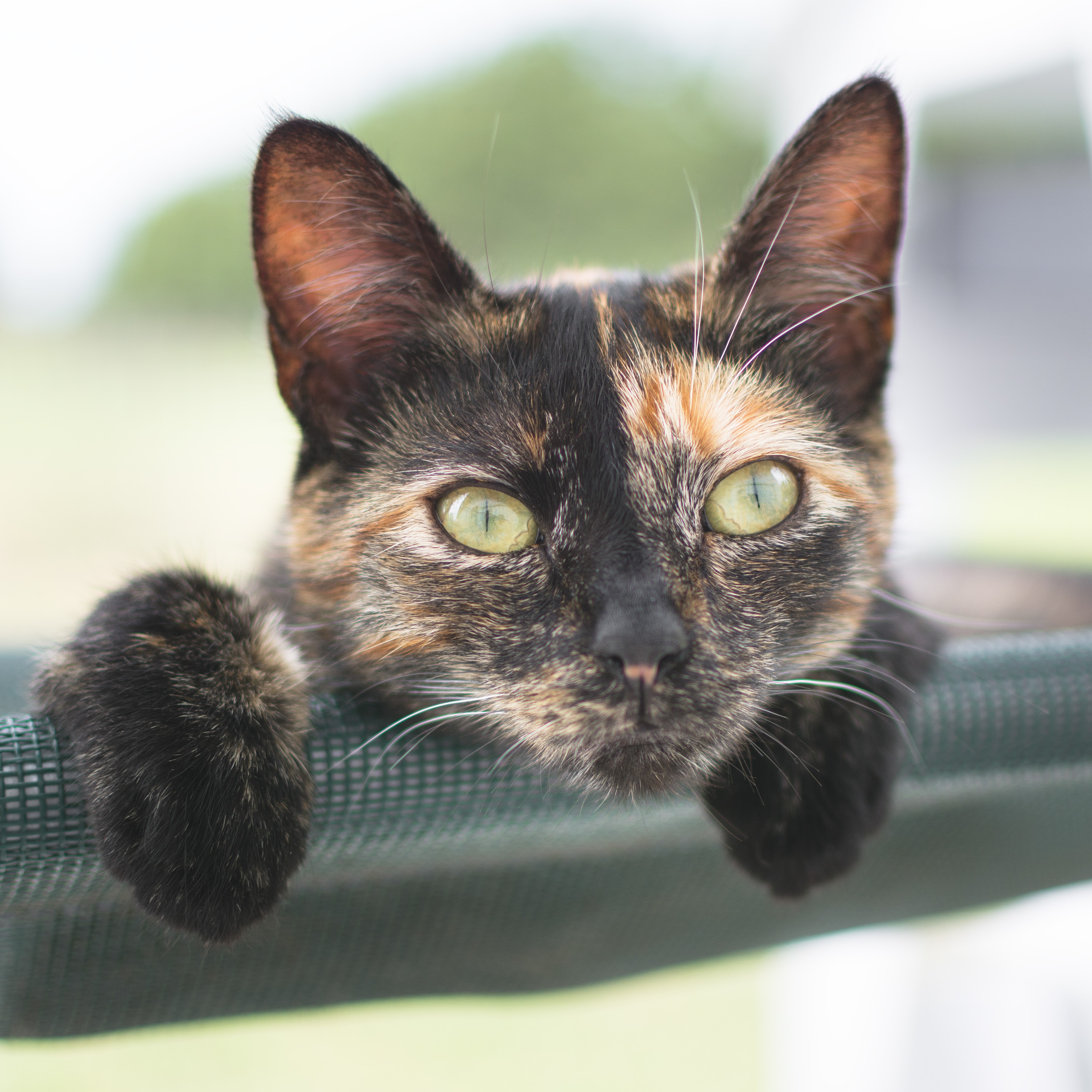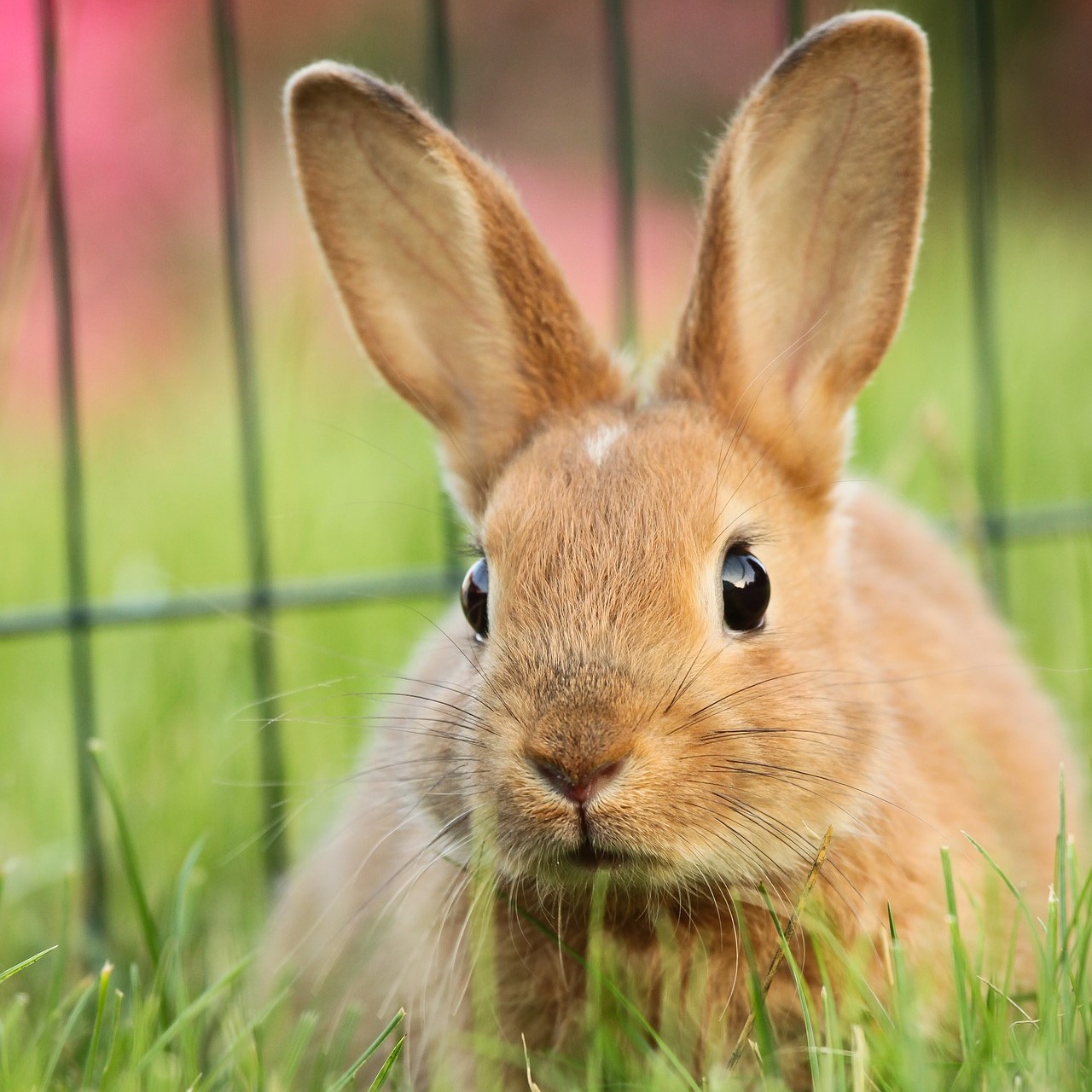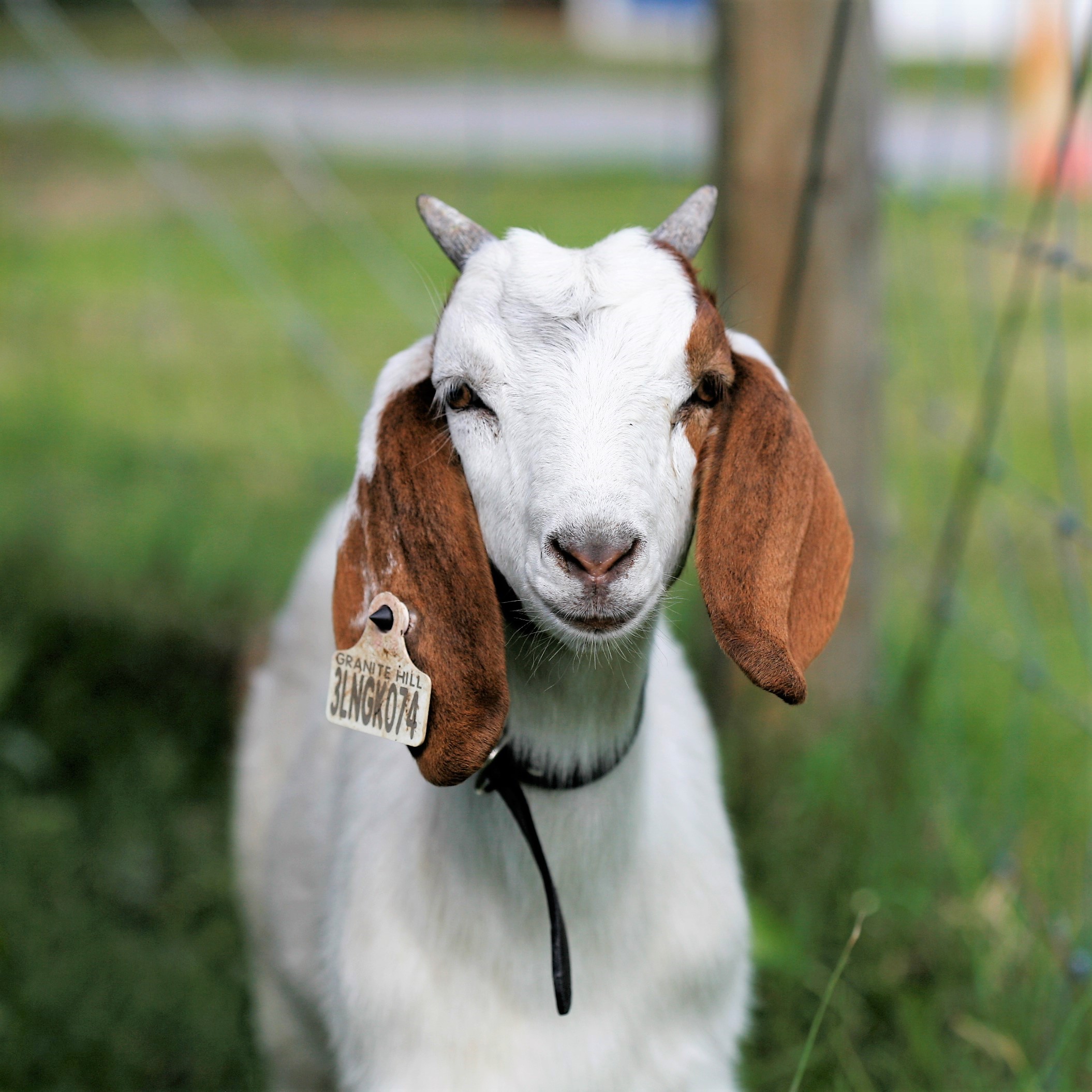Six reasons to adopt your pet…
- You are literally saving a life!
- You can be rest assured that you are not contributing to the tragedy that is pet over-population by encouraging irresponsible and un-registered breeders to produce offspring for the pet trade.
- You can depend on Animal Aid to assess the animals’ health and temperament in order to make the best adoption matches possible.
- Many shelter animals are already housebroken and trained, and have some understanding of what living with a family is like and how to fit in. They have a “head-start” on animals from pet stores or breeders.
- Animal Aid offers follow up services and support, including dog training, vet services and behavioural advice.
- Adopting your next pet from a shelter is also good value! Shelter fees include the cost of desexing, up to date vaccinations, worm and flea treatment along with microchip identification.
The most persuasive reason is that pet adoption is the right and ethical thing to do!
You will be helping, one animal at a time, to bring an end to this nation’s homeless animal problem.
Seniors for Seniors
Age should never be a barrier for pets looking for a home and it certainly isn’t at Animal Aid. If you are a holder of a Seniors Card you are eligible to adopt an animal over 8 years of age as part of the Seniors for Seniors program.
We know that at any age the pets in our care have so much to offer and so much love to give. Animal Aid’s Seniors For Seniors Program unites senior pets with senior citizens to ensure each experience the special bond that exists between a person and their pet.
When you adopt a pet through our Seniors for Seniors Program you receive:
- 25% reduction on adoption fee
- 25% off shop items, Animal Aid’s Grooming Salon and Boarding Services.
- 1 free yearly health check and vaccination at our clinic or conducted at our Gippsland Shelters.

Pet Adoption FAQ’s
How do pets come to be at Animal Aid?
Unclaimed and stray animals are brought to our shelters by Council Rangers. After an animal arrives at the shelter we check to see if they are microchipped and registered. Reuniting a lost pet with their family is always our primary objective and our staff do everything they can to ensure the dogs and cats in our care head home qucikly. Unfortunately not all pets are reclaimed after their eight day holding period. If this is the case, then each animal will have a visit with Animal Aid’s Vet Clinic team for a health check and our shelter staff will get to know them and their temperament so that we can rehome them with a suitable family as soon as possible.
- Unclaimed animals transferred from other Council pounds and shelters. Animal Aid has agreements in place, with a number of Councils that operate their own pound facility, to take animals to rehome as needed.
- Owner surrenders, where the animals’ owner is no longer able to care for them. Unfortunately many of the pets at our shelters have been surrendered by their previous family who, for a variety of reasons, cannot look after them any longer. The majority of these animals have come to Animal Aid through no fault of their own. Their owners may have moved to a home that doesn’t allow pets, or they are homeless themselves, or a new baby/child may be allergic. The fact that an animal has been surrendered to Animal Aid is not a reflection on the ‘re-homability’ of that pet
How are pets assessed to be available for adoption?
All animals undergo a vet check upon arrival, where they are vaccinated, wormed, flea treated and given a thorough once over to check for any health concerns.
All pets are given time to settle into the routine at Animal Aid, we then get to know the animal based on our observations, interactions & any history we have.
If we have concerns animals are placed into our ‘Behaviour Program’ or Foster Care Network and are offered support & training to help them as much as possible.
What is the pet adoption process?
Once our animals have had all of their health screening completed and our trained staff have spent time getting to know them, handleling them and observing them, they are ready to begin looking for their new home. When available, we will collect Expressions of Interest with the aim to find the best possible match for each individual animal.
The adoption process can include:
- Supervised meet with the adoption candidates, childern under 12 should be present
- Participation of family members in the adoption process
- Home visits may be required to determine suitability
- Trial adoptions can be an option
- Any existing dogs must meet the adoption dog at the shelter
- Special requirements may need to be verified, for example; fencing, etc.
Once our adoption staff are satisfied that all requirements have been met, including the adoptee being a suitable match for your requirements, the adoption can be finalised.
When can I take my new family member home?
What post-adoption support is available?
We have a variety of support available post adoption. We encourage all adopters to contact our shelter staff if they have any questions or concerns once their new family member is at home with them, no matter how much time has passed. Our Vet Clinic, Grooming Salon and Boarding facility is available to all families and adopters will find discount vouchers for our business services in their adoption pack.
Our dog trainer is also available to provide advice to new doggy owners and many people choose to enrol their new dog into our 10 week dog training course.
We also offer Puppy Preschool and private and small group training classes. Please call us for more information (03) 8756 1300.
What are Animal Aid's pet adoption costs?
Bringing a new pet into your home can include significant costs, including appropriate housing, bed, food, bowls, lead and collar, toys etc. The ongoing cost of food, veterinary care and general upkeep also needs to be considered before committing to adopt.
The adoption fee includes desexing, flea treatment, microchipping,14 day health cover & worming.
| Dogs | Cats | ||
| Pets up to 6 months | $650 | $235 | |
| Pets 6 months to 8 years | $515 | $155 | |
| Pets 8 years + | $320 | $105 | |
| Rabbits | Guinea Pigs | ||
| Pocket Pets | $95 | $65 | |
| Small Livestock | Goats | Sheep | Fowl |
| $100 | $100 | By donation |
*If you have a Seniors Pension Card and choose to adopt a pet aged 8 years or over you will receive:
- 25% reduction on adoption fee
- 25% off shop items, Animal Aid’s Grooming Salon and Boarding Services.
- 1 free yearly health check and vaccination at our clinic or conducted at our Gippsland Shelters
The adoption fee payable does not come close to covering the costs we incur to prepare pets for adoption. Veterinary costs, surgery, food and shelter operational costs, e.g. staff, are all part of the day to day running of the shelter while we care for thousands of animals in need. Please consider making an adoption donation when you take your new furry family member home.
What are Animal Aid's pet adoption costs?
Bringing a new pet into your home can include significant costs, including appropriate housing, bed, food, bowls, lead and collar, toys etc. The ongoing cost of food, veterinary care and general upkeep also needs to be considered before committing to adopt.
The adoption fee includes desexing, flea treatment, microchipping,14 day health cover & worming.
| Dogs | Cats | ||
| Pets up to 6 months | $675 | $245 | |
| Pets 6 months to 8 years | $535 | $160 | |
| Pets 8 years + | $340 | $110 | |
| Rabbits | Guinea Pigs | ||
| Pocket Pets | $100 | $70 | |
| Small Livestock | Goats | Sheep | Fowl |
| $105 | $105 | By donation |
*If you have a Seniors Pension Card and choose to adopt a pet aged 8 years or over you will receive:
- 25% reduction on adoption fee
- 25% off shop items, Animal Aid’s Grooming Salon and Boarding Services.
- 1 free yearly health check and vaccination at our clinic or conducted at our Gippsland Shelters
The adoption fee payable does not come close to covering the costs we incur to prepare pets for adoption. Veterinary costs, surgery, food and shelter operational costs, e.g. staff, are all part of the day to day running of the shelter while we care for thousands of animals in need. Please consider making an adoption donation when you take your new furry family member home.
What are Animal Aid's Opening hours?
What if I already have other pets at home?
If you have a cat at home and would like to adopt a dog, we will speak with you about they prey drive we have observed in the dog of interest to determine the risk. In some cases we may be able to conduct a home visit to help understand the dog and cat’s reactions.
If you already have a dog/s it is mandatory for a dog meet to take place here at the shelter. Please ensure your dog/s is up to date with their vaccinations. For the safety of the animals in our care we may need to signt proof of vaccination.
For cat to cat meetings, it is impractical to conduct such a trial in our cattery due to space, the shelter environment and the likelihood that your cat will not express their natural behaviour in this different territory. However, we can provide you with suggestions and guidelines to ensure that you have the best chance of a successful integration.
For those dog owners that would like to adopt a cat we recommend speaking with our highly trained staff to determine suitability.
What if I can't bring my pet home for some time after the adoption?
Due to space and resource constraints, we are usually not in a position to hold an animal at the shelter here for a significant length of time, once they have been adopted. We will assess the needs of each adoption on a case by case basis.
Will my new pet need training?
The dogs adopted from Animal Aid will have experienced various levels of training prior to arriving at the shelter. Additionally, some dogs may undertake some obedience training whilst at the shelter. All shelter dogs and adopters benefit from undergoing some training together. Our shelter kennels staff are available to assist your new family member settle into their new home life. Our dog trainer Michelle Lynn also runs a 10 weeks obedience training course at Animal Aid and we highly recommend all adopters enrol their precious pooch!
See our Dog Training page for more information
Can I adopt two pets at the same time?
What sort of fencing will I need to adopt a dog?
I am currently renting and would like to adopt a pet. What should I do?
If you are renting, you will need to seek approval from your landlord or realestate agent – please ensure you have approval prior to adoption.




